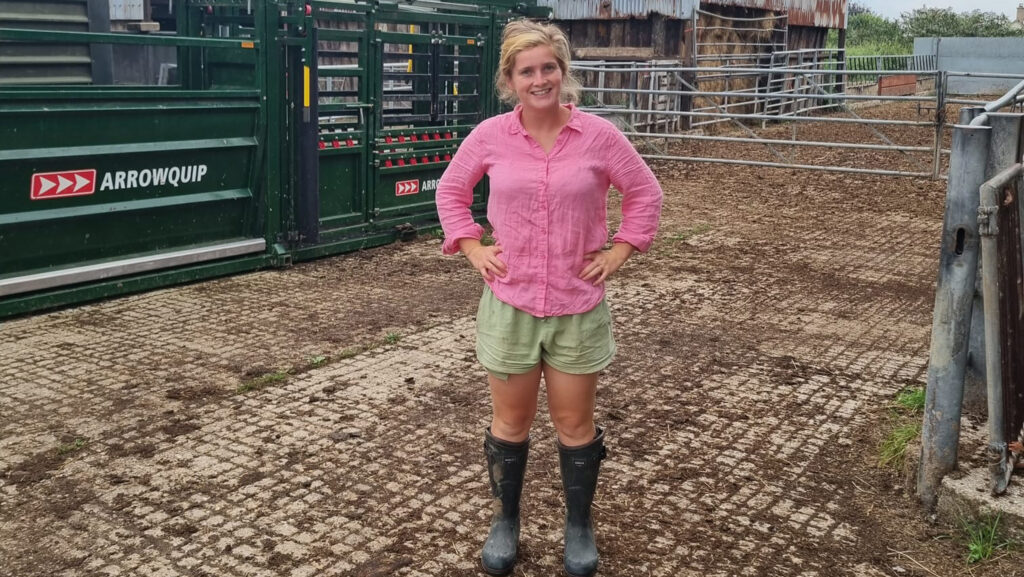Emily Lees: Regen and organic ag should work hand-in-hand
 © Supplied by Emily Lees
© Supplied by Emily Lees I broke my Groundswell virginity in early July.
Two intense days of running between intriguing lectures and fantastic kit demonstrations, grabbing coffee and food, and collapsing with exhaustion late in the evening.
This regenerative agriculture festival has been created for farmers, by farmers, and offered a busy programme with more than 400 speakers.
See also: Emily Lees – let’s leave old-fashioned language in the past
Experienced panels led thought-provoking talks which discussed the future.
From water quality testing on farms, to feeding Welsh schools with local, organic food, there was much to listen and learn from.
As an organic farmer, I have always been interested in how regen ag will develop.
Will there be certification? Will there will be tiers of regen, unlike the binary system for organic? And, importantly, what will the price difference be?
Like all trendy millennials looking for a quick answer, I asked ChatGPT to analyse the difference between organic and regenerative techniques.
It summarised it nicely: organic is about farming without harmful inputs, regenerative is about farming to heal the land. But can we have both?
Using one core principle of regen as an example, let’s explore no-till farming. No-till preserves soil structure, micro-organisms and soil carbon.
However, the use of chemicals such as the herbicide glyphosate can impact biodiversity and there are health concerns surrounding this chemical.
So, which is best for the environment and combatting the climate crisis? And are consumers willing to pay for it?
An organic farm could use no such substance, and instead must plough land to plant a crop. This releases soil carbon, but may be better in ecological terms.
So, which is best for the environment and combatting the climate crisis? And are consumers willing to pay for it?
I don’t know the answer to these questions, but we can all agree both sets of principles are taking us in the right direction, and are an improvement on post-war farming techniques.
Looking forward, regenerative certification could possibly be an essential aspect for farmers, allowing them to demand appropriate pricing for their produce whether they use one regen principle or 10.
It would be fantastic, therefore, to work towards a flexible and tailored system with organic and regen principles working hand-in-hand to help us create a resilient farming industry.

